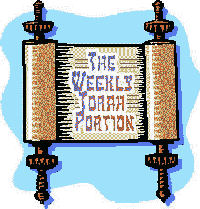Search our Archives:
» Home
» History
» Holidays
» Humor
» Places
» Thought
» Opinion & Society
» Writings
» Customs
» Misc.
|
As the Nation Ripens
By Michael Chessen
The Torah reading of “Balak” offers a unique perspective of the Torah
and the Jewish people, namely, that of the prophet or sorcerer, Bilaam. Dr.
Rabbi J.H. Hertz links Bilaam with Moses’ father-in-law, Yitro. Both of
these men were highly insightful non-Jewish individuals who independently
came to recognize the oneness and supremacy of the Master of the Universe.
However, whereas Yitro’s contribution to the Jewish people was wholly
positive, Bilaam apparently intended to inflict harm upon them, and instead
unwittingly served to bless them, his words being put into his mouth in a
manner which perhaps parallels the manner in which his donkey came to
“speak”.
Commentators have long debated whether Bilaam should be viewed as an
evil genius prevented from harming Israel by way of divine intervention, or
whether he was actually a great man who carried some tragic weaknesses.
Regardless of the view we adopt of Bilaam as an individual, his famous
praise regarding the goodness of the “tents of Jacob” has been deemed worthy
to greet us at the start of every morning prayer service. Not only are his
poetic utterances inspirational, but also the very spectacle of his repeated
failed attempts to carry out his mission as King Balak’s hired curser of
Israel leave us in awe of God’s wondrous powers to a degree which perhaps
parallels the impact of witnessing the splitting of the Red Sea.
Despite the fact that Bilaam’s praise of Israel is untarnished by its
source, we nevertheless need to learn from the negative example of his
behavior. God does not necessarily deem it proper for God-fearing Jews or
gentiles to cut themselves off from the world. Rather, they should seek to
positively “enlighten” it. When Balak’s emissaries come to bring Bilaam to
their king, God belatedly grants Bilaam permission to (what should be
properly translated as) “accompany” them. Bilaam subsequently chooses to go
“with” them, meaning, that he had linked himself to their goals and
aspirations. Also, whereas Abraham had risen early in the morning with zeal
and saddled his donkey in the eager service of God, Bilaam exactly emulated
Abraham’s actions, but in the pursuit of evil (Numbers 22:21).
While we in modern times have generally adopted the principle that “the
medium is the message”, in the story of Bilaam we need necessarily recognize
the medium of our message as none other than God Himself.
Wishing you all a Shabbat Shalom !

|
|
Please let us know if you see something unsavory on the Google Ads and we will have them removed. Email us with the offensive URL (www.something.com)
|





|
